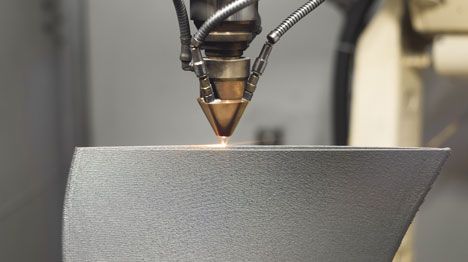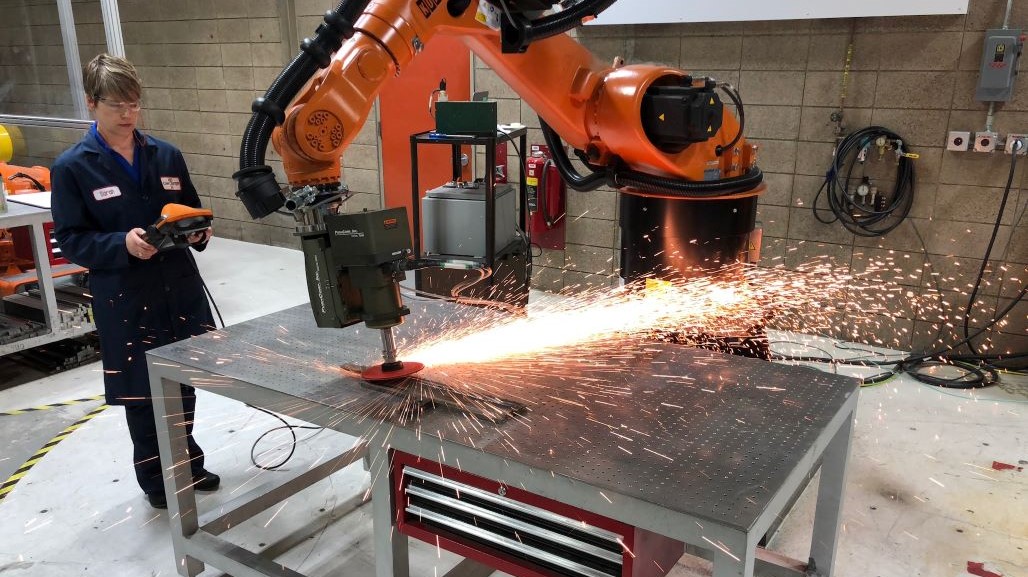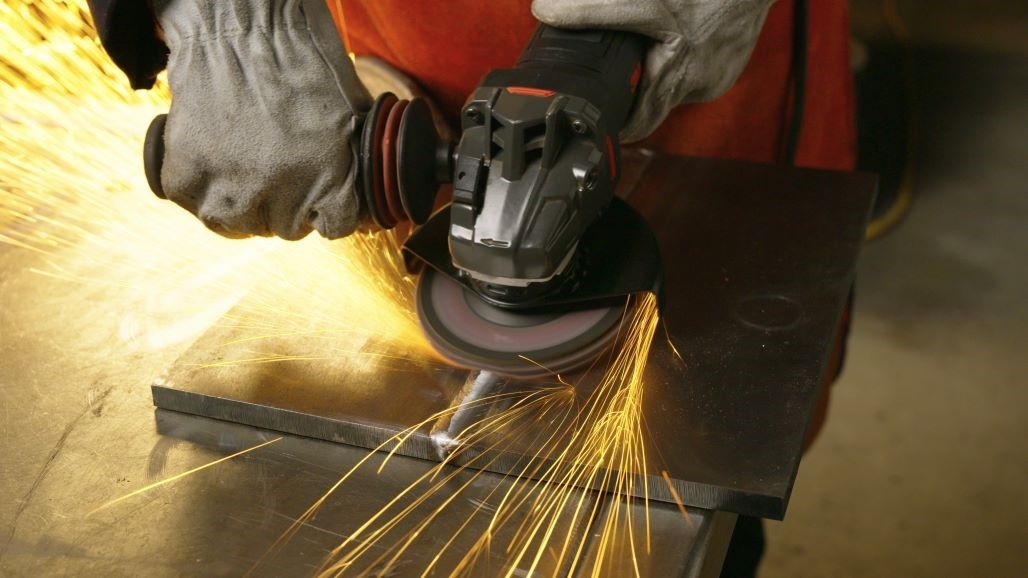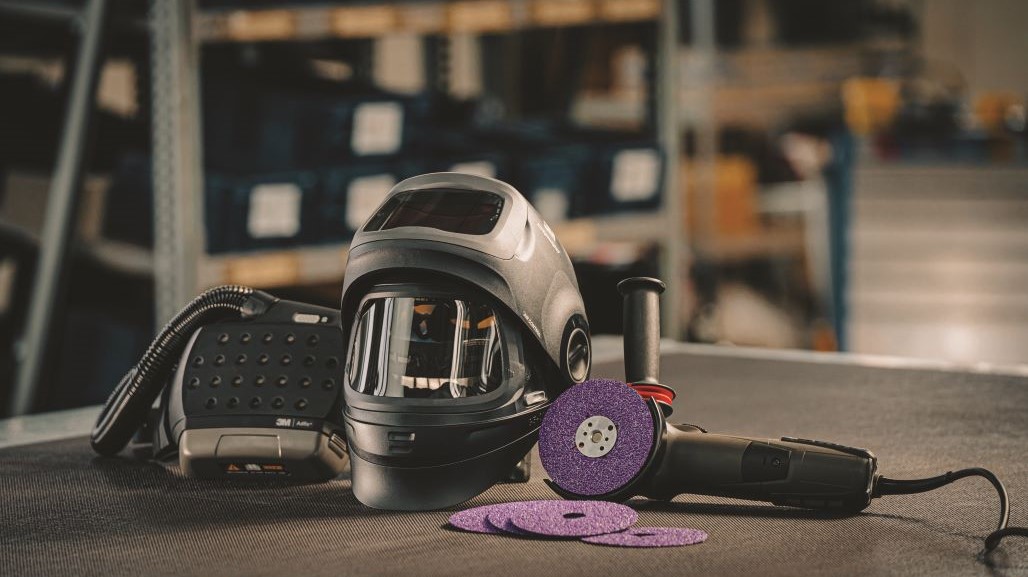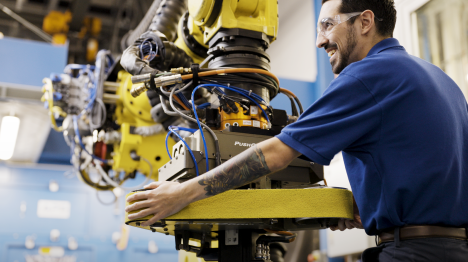Struggling to replace the mindset of “That’s the way we’ve always done it” at your machine shop with “How can we do it better?” A growing number of your rivals and peers are too, contending with insufficient staff and know-how to update manufacturing technology as well as a lack of money to cover training and new equipment.
The National Institute of Standards and Technology (NIST) can help with the first challenge through its Manufacturing Extension Partnership (MEP) program, a national network of industry experts who support small and medium-sized manufacturers.
Your state’s MEP Center can put you in touch with any number of regional offices able to provide technical expertise, training recommendations, lean manufacturing consulting services, and other resources. Once companies begin using such services to update their manufacturing tech and practices, the accompanying revenue growth often begins easing the cash dilemma.
“Breaking the status quo is hard work, and it’s not going to happen overnight, but you’ll eventually get there with the right team,” say senior project manager Sue Via and growth and innovation coach Steve Bebko of TechSolve Inc., an MEP partner in the Cincinnati area. “Most shops do need outside expertise to help them with these types of improvement projects. With the current labor shortages and supply chain issues, manufacturers only have so many internal resources available.”
The two describe their role as pushing manufacturing and machine shop clients “out of their comfort zone, but not so far that everyone begins to panic.”
Better MRO: What are some of the reasons that machine shops take a “that’s the way we’ve always done it” attitude when presented with new manufacturing technology that would be an upgrade from their current systems?
TechSolve: That attitude is still out there, but it’s changing. Management today seems more technologically enlightened, if you will, than they once were. The problem is that many manufacturers don’t know what to do––they only know that their current practices are not working and that they need to identify solutions. Some manufacturers looking at new technology need a guide to walk them through the process of assessing return on investment so that they choose the right options for their business. Others simply need a push in the right direction.
Too Busy for New Tech
Better MRO: No doubt some of them believe that the legacy processes are what made their company successful. Also, change is difficult, often expensive, and many shops say they are too busy to look at new technology. Thoughts?
TechSolve: First off, change doesn’t have to be difficult. It should be gradual but consistent. It's crucial to realize that you are in a race against your competition, whether it’s the shop down the street or those across the ocean. Those manufacturers who take the time to improve their operations or spend the money needed to create a stronger competitive advantage are the most successful. As for legacy processes, are you really doing exactly what you did 10 or 20 years ago? Perhaps you are, but the world is moving on, and if you don’t embrace new technology, you'll eventually get left behind. Also, have you asked your customers what they think? Are they looking for better lead times? Is your pricing competitive? Are they delighted with your shop’s quality levels? You must ask these questions, even if you don’t like the answers. Otherwise, you’re leaving the door open for competition.
Some manufacturers, regardless of size, need a guide … Others simply need a push in the right direction. Our job as advisers is to
push them out of their comfort zone, but not so far that everyone begins to panic.
Steve Bebko, Sue Via,
TechSolve
Better MRO: Whether it’s machinery, software, or training, what are some of the most common operations that machine shops should work to improve?
TechSolve: That depends on the shop and its particular types of inefficiency––what lean manufacturing experts call the eight wastes, or Muda. These are the activities that the customer is unwilling to pay for, the ones that don’t add value. Most of the manufacturers we visit have far too much waste, so job one is to eliminate, or at least reduce, waste. Secondly, we recommend that shops implement a system like Innovation Engineering that creates, communicates, and commercializes meaningfully unique products and services. That’s the best way to differentiate your shop from the competition.
Better MRO: Do you have any success stories about shops that have embraced a continuous improvement mindset?
TechSolve: The NIST website lists more than 1,000 such success stories across the United States and Puerto Rico. One that comes to mind is GMi Manufacturing of Lebanon, Ohio, which worked with us to streamline a critical manufacturing process, while simultaneously developing a plantwide lean manufacturing mentality that engaged the workforce in meaningful ways.
There was also Rhinestahl Advanced Manufacturing in Mason, Ohio. Management there was faced with meeting increasingly complex requirements from its customers, including 5-axis machining. TechSolve worked with the company on a workforce development program, resulting in 28 machinists, technicians, and programmers earning NIMS materials and machining credentials. Finally, we helped Cincinnati Crane & Hoist recover from a cybersecurity attack that cost the small company more than $250,000 and nearly put them out of business. They’ve since become compliant with more than 85 percent of the NIST 800-171 security controls and are poised to win additional DoD contracts.
Focus on the Big Picture
Better MRO: How does a shop get started? Any advice?
TechSolve: Despite the size of the business or what problems it might currently be experiencing, it’s a good idea to start by understanding its current state, then formulating a plan for where the organization wants to be in the future. What’s your vision for the company, and what are its goals? Where do you want to be in three, five, and 10 years? What specific areas need improvement? It’s only after you’ve identified your goals that you can develop a comprehensive strategy to achieve them. It’s also necessary to look at the big picture. Far too many managers decide on a course of action or improvement project based on its return on investment. This is shortsighted. Quite frankly, if the only way to become more competitive or meet certain customer expectations is to invest in a certain technology, then you have to do it, regardless. Return-on-investment calculations are only there to help determine the best way to go about it. MEP Centers, including TechSolve, can work with manufacturers to identify best-practice solutions and create sustainable frameworks for continuous improvement.
Better MRO: What resources are available to shops that want to break the status quo, and is there any financial help? All of this sounds expensive.
TechSolve: The first place to start, for any manufacturer, is with the MEP network, but if we’re unable to help or think there’s a better option, we will connect a company to the best resource. TechSolve has a deep, connected network, and we are aware of unique opportunities that can help manufacturers offset project costs through grants and subsidies available from federal and state governments. That said, we find that shops with some financial skin in the game are more likely to stick with the project and, ultimately, yield more favorable outcomes than those that are not as invested.
Better MRO: Did I miss any important points?
TechSolve: Just one more thing: While the first focus needs to be production to meet deadlines, production without strategic improvement is just a slow death. In the long run, shops struggle and struggle and eventually die out because somebody else has put in the effort to get better. By working with advisers like TechSolve, manufacturers are tapping into our expertise, and they get somebody who has been there before, avoiding the false starts and other mistakes that everyone makes. In the end, find somebody who can help analyze the situation, make a game plan, and then act as a coach, encouraging each team member to make small steps every day.


